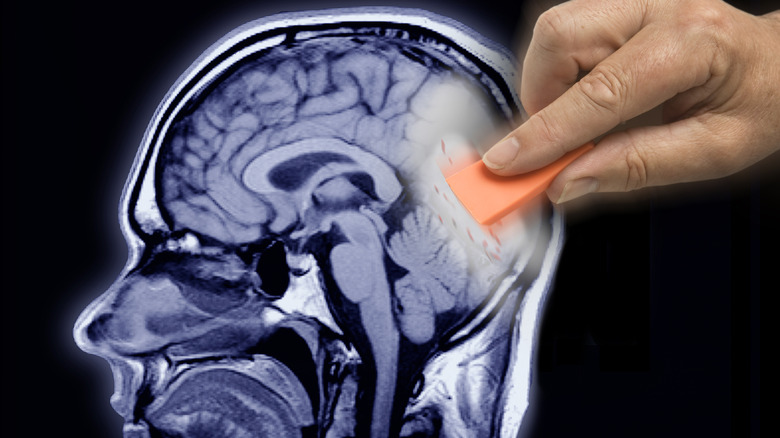Editing Bad Memories Is No Longer Science Fiction (And May Be The Future Of Mental Healthcare)
Research shows that repetitively recalling bad memories can have negative effects on mental health, such as leading to anxiety or depression, because they're sources of psychological stress. In the search for more successful treatment options for mental disorders with bad memories as an underlying cause, scientists have discovered that it's possible to weaken those memories by strengthening positive ones.
Published in the Proceedings of the National Academy of Sciences in July 2024, the study of 37 individuals underwent a multi-day experiment. It involved an evening of training the brain to associate nonsense words with negative images. The following day, after sleeping to consolidate the memories, the participants underwent more brain training to associate half of the nonsense words with positive images in an attempt to reprogram the associations and create positive memories that interfere with the negative ones. During the non-rapid eye movement (NREM) phase of the next night of sleep, the researchers played a recording of the words being spoken while monitoring brain activity with electroencephalography, which is used to detect even the slowest delta waves in sleep studies.
For several days after the night of memory reactivation, the participants completed questionnaires and tasks to assess their ability to recall the positive and negative memories. Ultimately, they were more likely to have positive associations with the nonsense words that were mixed up with the negative associations. The researchers noted in the paper that, although this research is in its early stages and involved a tightly controlled experiment, "our findings may offer new insights relevant for the treatment of pathological or trauma-related remembering."
Sleep has a major role in how we remember and forget
Scientists have long known that one of the purposes of the temporal lobe is to control memory encoding and storage in the brain. In regards to memory specifically, the function of the left temporal lobe is to remember verbal information, while the right temporal lobe does the same for non-verbal information. And, although the research continues, more than 100 years of study shows that sleep has a huge impact on the brain's ability to carry out those functions.
During the two light stages of NREM sleep, the brain sorts through the previous day of memories, saving what it deems as important ones and deleting everything else. The preserved memories are consolidated during the third, deep NREM phase. This process continues through the REM (dream) stage, during which the brain processes information from the memories, some of which can end up in dreams. Studies suggest that information may be deleted during REM sleep, too, which is why so many dreams are forgotten.
Additionally, the brain prepares for learning new information after waking during the NREM stages. That's why researchers have seemingly found a correlation between lack of sleep and cognitive decline. There is also evidence that sleep deprivation hinders the brain's ability to restrict the recollection of negative memories.

